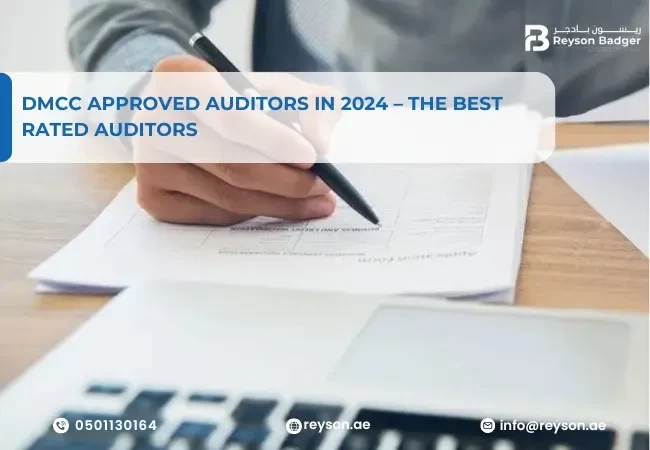

Located in the heart of Dubai, DMCC has emerged successfully as the one-stop global trading hub for businesses drawn from every walk of life all over the world. This is because the fact that it is a free zone authority to be able to provide a conducive business environment boosts growth and innovation. However, these companies registered under DMCC are mandated to keep strict adherence to regulations, especially on being audited annually to keep records transparent and accountable besides those set by DMCC regulations. This blog will explain about benefits of conducting an Audit and companies registered by DMCC in selecting the most excellent-rated auditors that have received clearance from DMCC; thus, it has comprehensively listed the top auditing firms that provide services and areas of specialty. Therefore, businesses will be protected from the operations, get rid of risks, and be able to drive growth in this dynamic DMCC ecosystem while being with a reputable auditor.
A Company is headquartered in the free zone, from which companies registered in the Dubai Multi Commodities Centre or offshore companies must conduct an annual audit of the financial statements. These companies can include free zones, offshore companies, representative offices, and registered branches. The audit practices shall be conducted by DMCC-approved auditors in Dubai to satisfy the requirements of the legislation in place and obtain the renewal of the trade license.
DMCC undertakes annual audits and the financial statements are posted within 180 days from the close of the financial year. The audit process encompasses statutory audit, VAT audit, and regulatory audit as enumerated below:
Failure to submit audited statements leads to penalties that start from a fine of $2,700 applied for delays exceeding 25 days, extending to a fine of $5,400 in case delays reach more than 90 days. Operations are suspended in case trade licenses are suspended due to chronic non-compliance.
DMCC-approved accountants are compliance specialists with regard to the regulations set by DMCC. They can assure their customers a reduced risk of non-compliance as they are well aware of the local laws.
Audited financials by professional persons enhance the reputation of a company and therefore increase trust among its stakeholders, investors, and clients.
Accredited Auditors who are specialists in DMCC. They offer more transparent and extensive audits with compliance with local standards as well as international standards.
Choose an accountant who has conducted audits for DMCC-registered businesses. This is to ensure expertise about the needs of the free zone area.
The accountant should be well-advised by DMCC regulations and industry practices. This is to ensure that all relevant inputs come up during the audit process from him or her.
Examine the effectiveness of services coming from possible auditors by reading reviews or testimonials from previous clients to ascertain their thoroughness and reliability in audit reports.
Effective communication is essential during the auditing process. Choose a bank-approved auditor with strong customer support and who is responsive to inquiries during the engagement.
Gathering required documents:
All financial records are precise and current.
Meeting with the selected auditor about when they will come to audit.
Organizations need to have an auditor who is DMCC-approved auditors in Dubai. The selection of a reliable auditor makes it possible for companies to understand even the most complex regulations of the DMCC, preserve financial transparency, and achieve growth in the fast-paced ecosystem of the DMCC. In order to ensure easy audit experiences, search for expert Audit services with unmatched insights into DMCC legislation as well as industry benchmarks. For bespoke audit solutions, consultancy assistance, and peace of mind, don't hesitate to get in touch with the highly experienced professionals at Reyson Badger. With rich exposure in DMCC audit services, Reyson Badger ensures that your business is always compliant, secure, and focused on success.